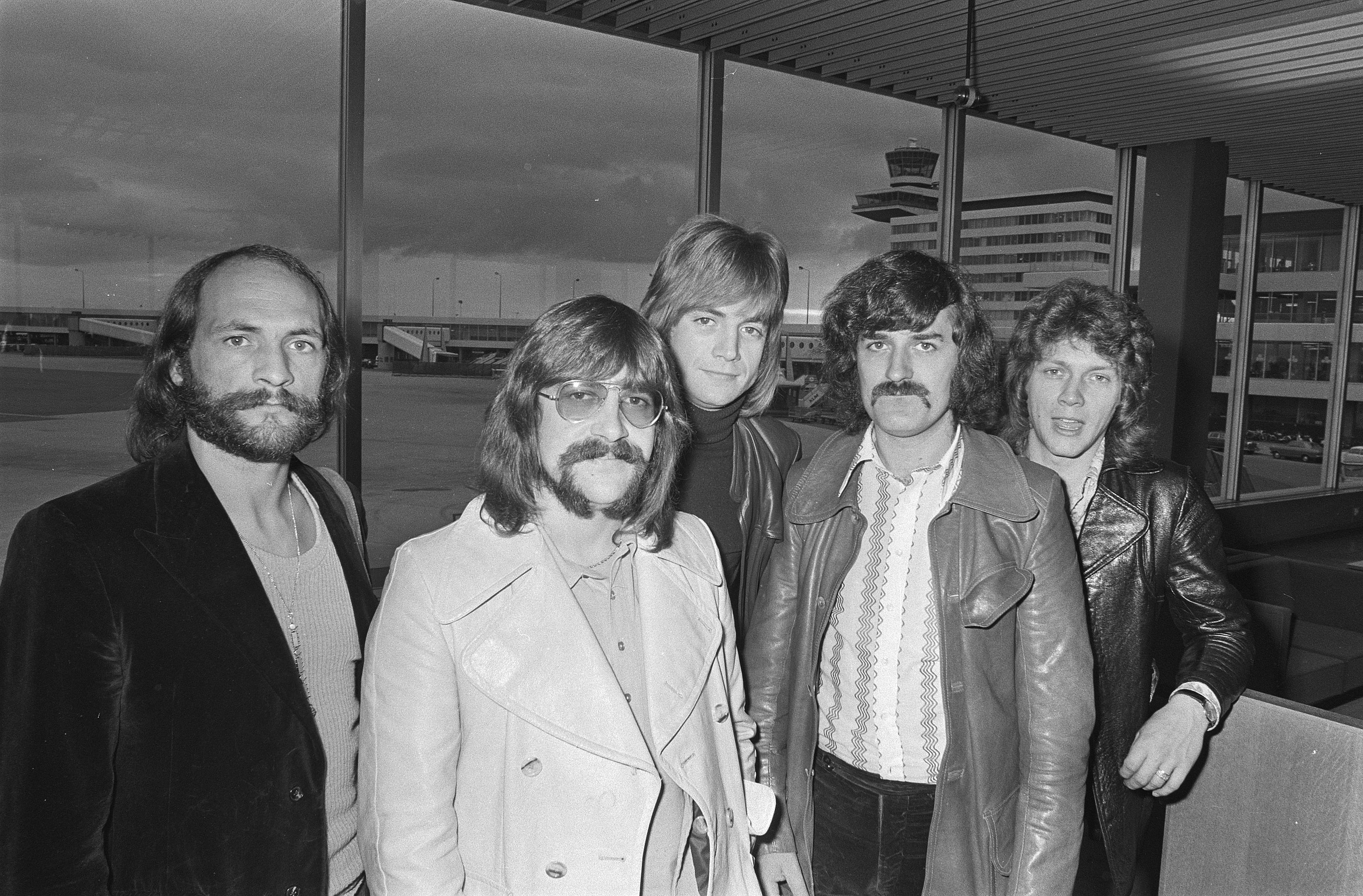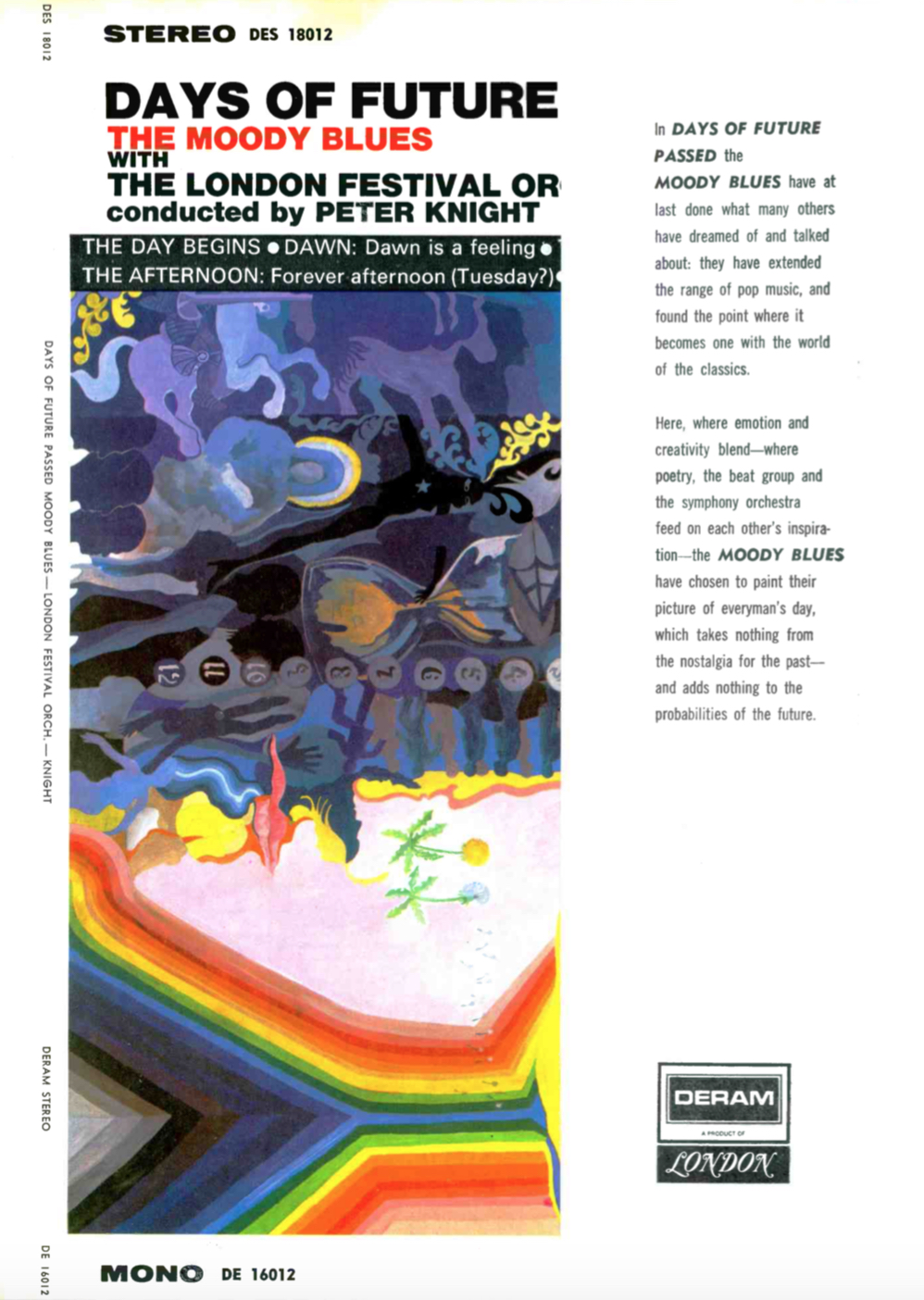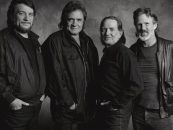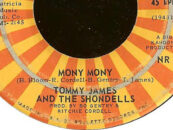Mike Pinder, Moody Blues’ Founding Member and Innovative Mellotron Player, Dies
by Best Classic Bands Contributors
The Moody Blues in 1970, l. to r.: Mike Pinder, Graeme Edge, Justin Hayward, Ray Thomas, John Lodge
Mike Pinder, a founding member and keyboard player for the progressive rock band, the Moody Blues, died today (April 24, 2024). The news of his death at age 82 was announced by a Facebook group devoted to his career. The post indicated that he died at his northern California home, surrounded by his family. “His final days were filled with music,” it said. Along with the Moody Blues’ so-called “classic lineup,” Pinder performed on the landmark 1968 album, Days of Future Passed, and its singles “Nights in White Satin” and “Tuesday Afternoon,” as well as such songs as “Ride My See-Saw,” “The Story in Your Eyes” and “I’m Just a Singer (In a Rock and Roll Band).” He wrote and sung the band’s 1968 single, “A Simple Game,” and many others, including several from Days of Future Passed.
The first lineup calling itself the Moody Blues got together in spring 1964, and included Ray Thomas (vocals, tambourine, harmonica), Pinder (keyboard and vocals), drummer Graeme Edge, guitarist/singer Denny Laine and Clint Warwick on bass and vocals. With four singers, the group was able to build a varied repertoire that featured strong vocal harmonies.
The early Moody Blues scored a number of hits in England, and one worldwide hit in “Go Now.” But the band splintered by 1966. “Clint Warwick was the only married guy in the group,” Pinder told Bill Kopp in a 2017 interview with Best Classic Bands that he did, along with Thomas, “and his wife wanted him to have a steady gig. Denny Laine thought he would do better making his way on his own.
“Our management had made off with any earnings from ‘Go Now,’” he said, “so we didn’t have managers or money.” Looking for a follow-up to their big hit, they even considered a song offered to the group by Paul McCartney, but in the end decided the tune wasn’t right for the Moodys. Instead, Mary Hopkin recorded the song, “Those Were the Days,” and scored a worldwide smash hit.
Watch the original lineup perform “Go Now”
Soon, Warwick departed. He and Laine were replaced by bass guitarist John Lodge and guitarist Justin Hayward, both of whom also became the group’s main songwriters. “John and Justin were the perfect additions to the band,” Pinder told Best Classic Bands. [This 2017 interview was Thomas’ last and may have been Pinder’s as well.]
The Moody Blues’ musical style changed with the new lineup. Pinder had worked for the company that built the unique Mellotron, a tape-based forerunner of modern sampling playback keyboards. A notoriously fickle instrument, it had only rarely been used in a rock context, the most prominent early example being the “flute” sound heard on the Beatles’ 1967 single “Strawberry Fields Forever.”
The versatile instrument’s temperamental nature was no challenge to Pinder. “I knew how they were built. I knew how to put the Mellotron together and how to take it apart,” he said. He replaced some of the less-useful sounds with more practical tapes containing orchestral strings and the like.
Around that time, executives from the group’s British label, Decca, approached the Moody Blues with an idea for a kind of hybrid album.
But the Moody Blues had ideas of their own. “We initially wanted to do a stage show with the Mellotron,” recalled Thomas. “And [conductor] Peter Knight went along with it, God bless him. So did Tony Clarke.” Clarke was a staff producer at Decca, and Pinder says his support was critical. “We considered Tony to be the sixth Moody,” he says.
The band and Clarke developed an even more ambitious plan for the album. “I had always wanted to create something that was conceptual,” Pinder said. “I loved the works of Mantovani. I wanted to have our albums on people’s shelves … albums that people would want to collect, and play in their entirety.”
Work began on what would become Days of Future Passed, with Knight composing for the London Festival Orchestra while the band worked separately with Clarke. The Moody Blues wrote and recorded eight songs that, taken together, formed a concept: a day in the life of an everyman. At least two of the songs, “Tuesday Afternoon” and “Nights in White Satin,” were destined to become classics. “We were all writing songs,” Pinder said. He considered Days of Future Passed the successful result of a winning combination: “the use of the Mellotron, the input of Tony Clarke, the support of Decca, the ambience of the studio and the combined creativity of the band members.”

This ad for Days of Future Passed appeared in the March 30, 1968 issue of Record World
Knight’s orchestrations provided the link between the pop songs; taken together the work was one of the earliest exemplars of what’s now known as progressive rock. “We were not there when the orchestra parts were done,” Pinder told Best Classic Bands. “But we had a wonderful group listening session after they added their contributions. We loved what they had done.”
On its November 1967 release, Days of Future Passed did reasonably well on the British album chart, reaching #27. The single of “Nights in White Satin” only made it to #19 there, with no success in the U.S.
The band wasn’t too worried, though. “We were just thrilled that we’d got it released,” Thomas said. “We knew what was happening live, and we were getting great reviews.”
The 1968 followup single, “Tuesday Afternoon,” fared better in the U.S., reaching #24, and there were hit singles like “Question” (1970) and “The Story In Your Eyes” (1971), but the band finally hit paydirt in 1972. When re-released in America that year, Days of Future Passed soared to the #3 spot on the Billboard chart, and the “Nights in White Satin” single, on its second go-round, made it to #2 on Billboard’s Hot 100 single chart.
Watch the original “Nights in White Satin” video
Related: Hayward sheds more light on the recording of the classic album
The Moody Blues’ run with the lineup of Thomas, Pinder, Edge, Lodge and Hayward, spanned the so-called “classic seven” albums that also included On the Threshold of a Dream, A Question of Balance and Seventh Sojourn. Weary of touring, Pinder left after 1978’s Octave. Thomas continued with the band through its MTV-era resurgence and beyond, retiring from the group in 2002. He died on January 4, 2018, at age 76. Graeme Edge died in 2021. Both Lodge and Hayward are still performing, though separately.
Listen to “A Simple Game,” written and sung by Pinder
Pinder’s friendship with John Lennon led to his performing on the Imagine album, playing the tambourine, for instance, on “Jealous Guy.”
Pinder was born December 27, 1941, in the Birmingham, U.K., suburb of Erdington.
Both Pinder and Thomas were among six members of the progressive rock band who were inducted into the Rock and Roll Hall of Fame’s Class of 2018. Pinder was the only one who did not speak at the event. He later wrote on his website, “Many MB fans have asked why I did not speak at the induction but by the time the Moodies took the stage we were 5 hours into the ceremony. The oldest of the inductees were up the latest. The speeches were a bit anti-climatic at that point and it was only fitting that the current touring members (Edge, Hayward and Lodge) spoke first. I am happy that we finally got inducted for our fans sake.
“As I have said for the last 30 years ‘the fans are my hall of fame.’”
Hayward wrote a tribute to his bandmate. “Mike was a natural born musician who could play any style of music with warmth and love,” it read. “His re-imagining and rebuilding (literally) of the Mellotron gave us our identifiable early sound. He was a huge part of my own musical journey. My sincere condolences to his loving and devoted family.”
And Lodge wrote, “All the love possible goes out from the Lodge family to Mike’s family today… RIP.”
The Moody Blues’ recordings are available in the U.S. here and in the U.K. here.






9 Comments so far
Jump into a conversationThanks, BCB, for another great post. Pinder’s mastery of the Mellotron through the first six of the “classic” seven LPs was nothing short of groundbreaking and is still highly underappreciated. The remastered LPs really bring his work to the fore as the unifying element of a lot of their music. Seeing the band in 1968 perform pieces from Days of Future Passed was a game changer in terms of the venue-filling orchestral sounds he coaxed out of that contraption. As a 14-year-old, I was awestruck then and still marvel at how revolutionary it all was in the history of what we loosely define as progressive rock music. RIP, Mike, Ray and Graeme, and thanks for the amazing music and memories.
Great 10-minute overview, including about the Mellotron: https://www.youtube.com/watch?v=WbNo6Wnejic
A beautiful soul, soulful musician, courageous expresser of deeply felt spiritual concerns, a genuinely compassionate man. I will miss you, my musical friend I never met in person.
The tale of how Pinder ended up playing tambourine on the “Imagine” album is worth repeating here – this is from the Wikipedia entry and I don’t know the original source:
Pinder guested on John Lennon’s Imagine album on the songs “I Don’t Wanna Be A Soldier (I Don’t Wanna Die)” and “Jealous Guy”, playing tambourine rather than the mellotron he intended to play, because by Pinder’s account the tapes in Lennon’s mellotron looked like “a bowl of spaghetti”.
Mikr provided the sometimes eerie sound to the Moodies music which helped to make the bands music decidedly different from anything else at the time, coming out at a time of fuzz busters, Zeppelin, Doors, etc.
I have his solo efforts and a lot of his own music could be in the new age category.
R.I.P. Mike & peace to your family.
Also Ray & Graeme.
I was fortunate enough to see the great Moody Blues with Mike Pinder, Hayward, Lodge, Edge, and Thomas at the San Diego Sports Arena in November of 1973. It was one of the greatest concerts of my lifetime (I’m now 70 years old). Pinder was one of my musical heroes and his kind will never be seen again. Pinder influenced me to become a musician and to cherish beauty and musical expression. He literally changed my life. MGM
I am in mourning. My heart is broken. Mike Pinder. The Mellotron. The Moody Blues. What an influence you’ve had on my life. God bless you. Rest in peace and play your Mellotron in the sky.
RIP Mike Pinder. I got to see the MBs in 1970 in the chapel at U of Vermont. The blue hairs mistook them for a classical ensemble when they booked them. It was a great show in a great venue. They never booked another show there, haha.